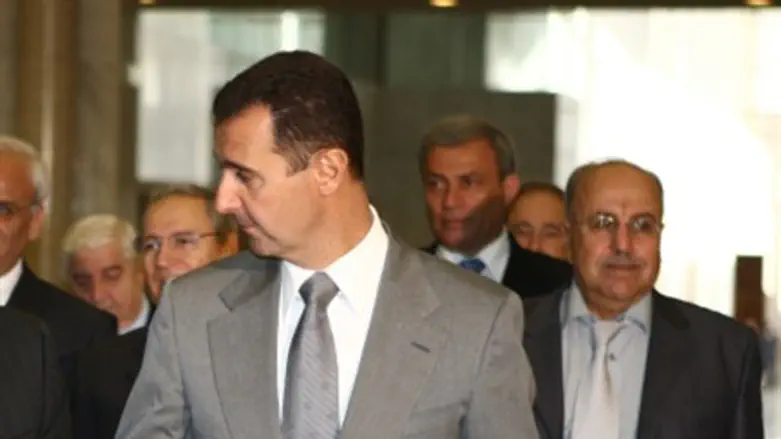
Syrian President Bashar Assad’s troops, unfazed by Thursday’s UN condemnation of the crackdown on protests, continued to shell rebel-held neighborhoods in the central city of Homs on Friday, The Associated Press reported.
Activists told AP that at least 13 people were killed in the attacks. They added that tens of thousands of protesters poured into the streets after Friday prayers from Daraa in the south to Aleppo and Idlib in the north and Deir el-Zour in the east to areas around the capital Damascus. The Local Coordination Committees said security forces opened fire on some protests.
The Britain-based Syrian Observatory for Human Rights reported that shells slammed into the Homs neighborhoods of Baba Amr, Bayadah, Khaldiyeh and Inshaat. Amateur videos showed at least one tank shelling Baba Amr from close by.
As well, two people were killed by security forces fire in Daraa and 11 others in various attacks across the country, the group said, raising the overall death toll Friday to 26. In neighboring Lebanon, security officials told AP that two Lebanese farmers were wounded in the border village of Qaa after they were hit by bullets coming from the Syrian side.
Meanwhile in Washington, U.S. Secretary of State Hillary Clinton and EU foreign policy chief Catherine Ashton condemned the violence and demanded that Assad step aside.
Clinton noted Thursday's UN vote against Syria, but lamented that “in the face of this global condemnation, the regime in Damascus, however, appears to be escalating its assaults on civilians.”
She added, “Those who are suffering cannot get access to the humanitarian assistance they need and deserve” and said the U.S. “will keep working to pressure and isolate the regime, to support the opposition and to provide relief to the people of Syria.”
Ashton echoed Clinton’s remarks and said, “We are absolutely clear that President Assad should stand aside. You cannot kill your own people.”
In Paris, British Prime Minister David Cameron and French President Nikolas Sarkozy called on the Syrian opposition to organize itself.
In a joint press conference with Cameron, Sarkozy said, “We cannot bring about a Syrian revolution ... if the Syrian revolution does not make an effort to rally together and organize so that we can better help them.”
He insisted that “the revolution will not be brought about from outside, it will be brought about from the inside.”
Cameron said that “what is happening in Syria is appalling,” adding that “I'm not satisfied that we are taking all the action we can.”
In a joint statement, Cameron and Sarkozy pledged that their countries “will continue to increase their engagement with the Syrian opposition, including encouraging the opposition to work together and to support the vision of an inclusive, prosperous and free Syria.”
The resolution which in the General Assembly on Thursday passed with 137 nations in favor and only 12 opposed.
Introduced by Egypt on behalf of 27 other countries, including Arab states, Britain and the United States, the resolution condemns “systematic human rights violations” in Syria.
The General Assembly is expected to next demand Syria immediately adopt an Arab League blueprint to calm the uprising, to “cease all violence” against civilians and return security forces to their barracks.
(Arutz Sheva’s North American Desk is keeping you updated until the start of Shabbat in New York. The time posted automatically on all Arutz Sheva articles, however, is Israeli time.)